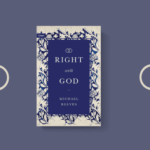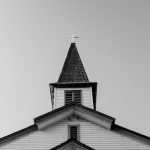Next week (Nov. 30-Dec. 1, 2017), the Supreme Court of Canada will hear submissions in the Trinity Western University case, which is undoubtedly one of the most important religious freedom cases in recent Canadian history.
To give you some perspective on the significance of this case, I need only turn your attention to the staggering number of interveners in this case. Most cases before the Supreme Court of Canada do not have a single intervener. The more significant ones have half a dozen. Trinity Western involves almost thirty interveners, including groups as disparate as the Canadian Conference of Catholic Bishops, the Canadian Secular Alliance, Lesbians Gays Bisexuals and Trans People of the University of Toronto, the United Church of Canada, and the World Sikh Organization of Canada.
So what’s all the fuss about? Why do so many people and organizations from vastly different backgrounds suddenly want their day in court?
Background
Much has already been written about the background of this case, including this recent article published by Bob Kuhn, the President of Trinity Western University. I encourage everyone who is concerned about religious freedom in Canada to read up about the case’s history and significance. In case you don’t have that opportunity, let me give you a brief summary.
The case pits two provincial law societies against Trinity Western University (“TWU”), an evangelical, post-secondary institution located in Langley, British Columbia. TWU wants to start the first, faith-based law school in Canada, but the two law societies don’t want to accredit its law degrees.
Why not? It’s not because the proposed law program doesn’t meet the Law Societies’ academic standards. In fact, the Federation of Law Societies of Canada approved TWU’s law program back in 2013. You would think that this would have settled the issue, but it didn’t. The law societies in British Columbia, Ontario, and Nova Scotia (the last of which isn’t involved at the Supreme Court) all denied accreditation for the same reason: they don’t like TWU’s moral position on sexuality and marriage.
You may ask, “What does that have to do with anything?” That’s a good question. How did this case about accrediting law degrees somehow become a case about sexuality and marriage? It happened because of the controversy surrounding TWU’s “Community Covenant”. All students, including those that would attend the proposed law school, are required to sign this covenant, which includes various commitments by the school and by the students to relate to one another in a biblically faithful way. This includes commitments to cultivate Christian virtues, treat all persons with respect and dignity, submit to the laws of Canada, and communicate in ways that build others up. The Covenant also includes a commitment to honour and uphold the Bible’s teaching that “sexual intimacy is reserved for marriage between one man and one woman”.
This last clause is the object of the law societies’ wrath. They say it discriminates against individuals who don’t hold to a biblical understanding of sexuality and marriage, and because of this discrimination, they refuse to accredit TWU’s law degrees.
In other words, there is a collision between freedom of religion and freedom from discrimination. Both are constitutional rights that are protected by the Charter of Rights and Freedoms, and both are engaged in this case. The question, then, is which one must give way to the other? This is the central issue of the case, and it is why so many parties are interested in its outcome.
What’s at Stake?
There is much at stake in this legally complex case, including issues relating to standard of review, statutory interpretation, and the binding authority of legal precedent. All of these issues are significant in their own right, but if I would try to boil it down to one, fundamental issue, it would be this: how much room is there in a pluralistic society like Canada to accommodate beliefs and practices of some that may offend others?
Not much, according to the Court of Appeal for Ontario. In his 2016 Trinity Western decision, Justice MacPherson, for a unanimous court, wrote, “My conclusion is a simple one: the part of TWU’s Community Covenant in issue in this appeal is deeply discriminatory to the LGBTQ community, and it hurts.”[1] This, in his words, formed the “backdrop” for his conclusion that freedom of religion in this case must give way to freedom from discrimination. In his view, the harm caused to members of the LGBTQ community significantly outweighed the harm caused to prospective students at TWU’s law school, and therefore the Law Society of Upper Canada (Ontario’s law society) was quite reasonable in rejecting TWU’s application for accreditation.
If the Supreme Court of Canada adopts the Ontario Court’s position, then needless to say, the future does not bode well for religious freedom in Canada. Churches, ministries, and individual believers who hold to a biblical understanding of marriage and sexuality will increasingly be crowded out of the public sphere, whether it be the loss of charitable status for churches and ministries, or exclusion from professions for individuals. Indeed, as detailed in this TGC Canada article, the Law Society of Upper Canada has already begun to put structures in place that examine the personal beliefs of lawyers regarding equality (which overlaps heavily with freedom from discrimination).
In contrast, the British Columbia Court of Appeal has taken a very different approach. In their Trinity Western decision, a rare five-judge panel also issued a unanimous decision taking the opposite position as their peers in Ontario. This is what the Court said regarding the pluralistic society that Canada is, and should continue to be:
State neutrality is essential in a secular, pluralistic society. Canadian society is made up of diverse communities with disparate beliefs that cannot and need not be reconciled. While the state must adopt laws on some matters of social policy with which religious and other communities and individuals may disagree (such as enacting legislation recognizing same-sex marriage), it does so in the context of making room for diverse communities to hold and act on their beliefs.[2]
Then, commenting directly on the Ontario Court’s conclusion that the Community Covenant is “deeply discriminatory to the LGBTQ community, and it hurts”, the British Columbia Court said, “Disagreement and discomfort with the views of others is unavoidable in a free and democratic society.”[3]
This is what true pluralism looks like: not sanctions for divergent beliefs, not exclusion from the public sphere, but accommodation for irreconcilable, yet peaceful disagreement.
Let Us Pray
Scripture commands us to pray for our governing authorities (2 Timothy 2:2), and yet we rarely pray for the nine judges of the Supreme Court of Canada even though the judiciary is part of the Canadian government. They may be separate from the legislative and executive branches of government, but they play an equally important, if not more important, role in making decisions that will enable believers to “lead a peaceful and quiet life, godly and dignified in every way.”
So let us pray for the men and women who constitute the Supreme Court of Canada. You can read about them here if you’re curious about who they are. Let us pray for them now, and let us pray for them regularly.
If you’re not sure how to pray about this issue, here are a few suggestions:
- Pray that the judges of the Supreme Court of Canada would approach the case impartially, without bias, and without the emotionalism that often attracts issues involving the LGBTQ community
- Pray that the arguments during oral submissions would address the most important issues and not peripheral ones
- Pray for the lawyers arguing in support of TWU, particularly the believers (and there are quite a few of them), that they would argue persuasively and passionately, and that “the Holy Spirit will teach [them] in that very hour what [they] ought to say.” (Luke 12:12).
- Pray for greater peace between the evangelical and LBGTQ communities, that our interactions with one another would be an example of how pluralistic society can flourish even in the midst of civil disagreement
- Pray for an outcome that will strengthen religious freedom in Canada, not weaken it
- Pray for the church in Canada, that regardless of the outcome, we would not revile those who revile us, but continue entrusting ourselves to him who judges justly (1 Peter 2:23)
The Evangelical Fellowship of Canada has taken the initiative to organize a national day of prayer this Sunday (November 26) for the successful resolution of the case. You can learn more about that here. Whether you participate in the day of prayer or not, I encourage everyone to spend some time in the coming days praying for a result that the Lord will use to advance our gospel mission in Canada, for the joy of God’s people, and for the glory of our great God and Saviour.
[1] Trinity Western University v. Law Society of Upper Canada, 2016 ONCA 518, at para. 119.
[2] Trinity Western University v. Law Society of British Columbia, 2016 BCCA 423, at para. 185.
[3] Ibid., at para. 188.























